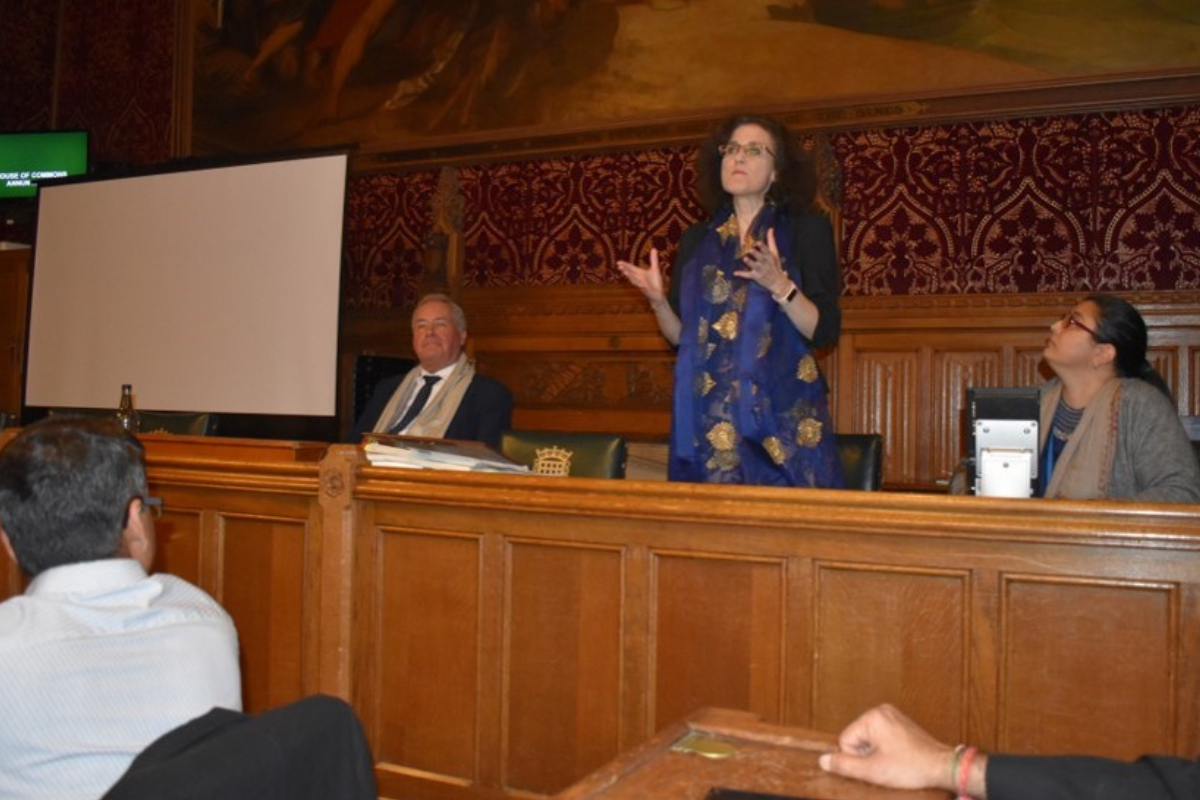The British Parliament on Thursday, October 27 witnessed a historic commemoration of the 75th year of the signing of the Instrument of Accession by Maharaja Hari Singh, through which the erstwhile Princely state of Jammu and Kashmir acceded to India.
Organised by the Jammu Kashmir Study Centre UK, a think tank dedicated to the study of Jammu and Kashmir, the event was hosted by Conservative MP Bob Blackman who is also the Chair of two All Party Parliamentary Groups (APPG) for trade and Investment with India and APPG for Indo-Pacific and Co-chair of APPG for India and also APPG for Indian Traditional Sciences.
The event while reflecting on the historicity of the days leading up to the Accession of Jammu and Kashmir to India focused on showcasing the current developments in the region including the positive changes seen since the abrogation of Article 370.
The event saw over 100 attendees comprising many local Councillors, community leaders, representatives of various organizations, members of the diaspora and friends of India. In attendance were Bob Blackman MP, who hosted the seminar along with Theresa Villiers MP Chipping Barnet; Virendra Sharma MP, Chair, APPG for India and Ovessa Iqbal, First Secretary, High Commission of India.
Bob Blackman MP who chaired this informative seminar at the House of Commons, was the last British Parliamentarian to have visited Jammu and Kashmir in 2016.
Blackman displayed his framed copy of the Instrument of Accession signed by Maharaja Hari Singh, adding that it occupied a place of pride in his office. He stated emphatically that it couldn’t be clearer that the late Maharaja ceded the entirety of Jammu and Kashmir to India and Jammu and Kashmir is an integral part of India and has been since 1947.
Blackman hoped that better sense prevails in Pakistan so that it ceases its illegal occupation of parts of Jammu and Kashmir and the region gets re-united as that is what is legally and constitutionally correct.
Theresa Villiers MP said, “So often we hear ventilated in the House of Commons debate on Kashmir which is wrong, misleading, incorrect, downright lies and it is great that you are all here to talk the truth about Kashmir, to get some balance in this debate”. She expressed her desire to hear more about Jammu and Kashmir.
Congratulating the organisers, Virendra Sharma MP, said, “This is an important seminar and an act of remembrance for Jammu and Kashmir’s accession to India.”
He spoke of groups who spread misinformation on Jammu and Kashmir and stressed that this is why leaders from across parties and community members must come together to counter the false narrative.
Ovessa Iqbal, First Secretary, High Commission of India, highlighted the strides being made by Jammu and Kashmir and the fast-paced growth since the abrogation of Art 370 in all sectors and across the state.
The JKSC UK team, with a view to challenging myths and counter falsehoods surrounding the Accession, highlighted the Pakistani invasion of Jammu and Kashmir and the terrible days between October 22-24 1947, when Jammu and Kashmir were subject to killings, loot, plunder, rape and kidnapping of women at the hands of the tribal invaders from Pakistan, led by Pakistani army regulars.
The Hindu and Sikh population from POJK was completely annihilated. The resistance and pushback by the JK State Forces and ordinary Kashmiris establishes the fact that the Accession was the people’s will.
The only outstanding issues remain the illegal occupation of Jammu and Kashmir by Pakistan and the terrorism and radicalism sponsored by it in Jammu and Kashmir.









